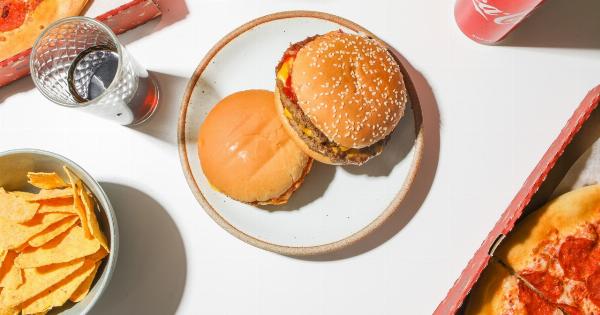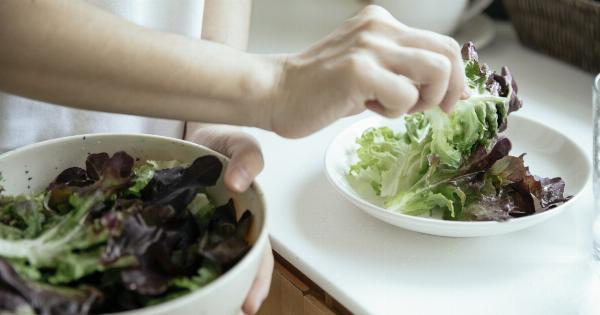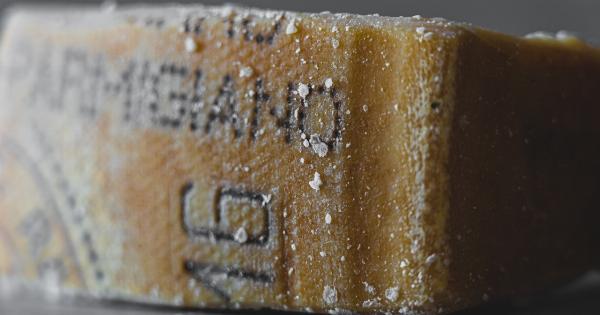Salt is an essential element that our bodies need in moderation to perform vital functions. However, excessive salt consumption can have adverse effects on our health, leading to high blood pressure, heart disease, and other related conditions.
Although it is important to be mindful of our salt intake, it can be challenging to decipher which foods are the saltiest and the ones we should avoid.
In this article, we will uncover the saltiest foods that should be avoided at all costs.
By familiarizing ourselves with these culprits of high sodium content, we can make more informed choices when it comes to our diet and ultimately improve our overall health.
1. Processed Meats
Processed meats such as bacon, salami, sausages, and hot dogs are notorious for their high salt content. They undergo various preservation processes, including curing, smoking, and adding sodium-containing preservatives.
When consumed regularly, these foods can significantly contribute to excessive sodium intake and increase the risk of developing hypertension.
2. Canned Soups
Canned soups are often considered a quick and easy option for a meal. However, many commercially available canned soups are loaded with sodium as a preservative and flavor enhancer.
It is not uncommon to find a serving of canned soup containing more than half of the recommended daily sodium intake. Opting for homemade soups or low-sodium alternatives is a healthier choice.
3. Fast Food Meals
Fast food is notorious for being high in sodium due to the use of processed ingredients, including processed meats, sauces, and dressings.
A single fast food meal, such as a burger with fries and a soda, can easily exceed the recommended daily sodium intake. It is wise to limit the consumption of fast food and opt for healthier homemade alternatives whenever possible.
4. Deli Meats
Similar to processed meats, deli meats like ham, turkey, and roast beef contain high amounts of sodium. These meats are often cured and contain added preservatives, making them saltier than fresh cuts.
When making sandwiches or opting for deli meats, try to choose low-sodium options or consume in moderation.
5. Condiments
While they may seem innocent, condiments such as ketchup, soy sauce, barbecue sauce, and salad dressings can be major contributors to excessive salt intake.
These flavorful add-ons can pack a surprising amount of sodium, so it is crucial to read labels carefully and choose low-sodium or homemade alternatives whenever possible.
6. Frozen Meals
Frozen meals or ready-to-eat microwave dinners are often convenient options for those with busy lifestyles. Unfortunately, they are also commonly high in sodium content to enhance their taste, texture, and shelf life.
Checking the nutritional information on the packaging and opting for lower-sodium options or homemade alternatives can help reduce excessive salt intake.
7. Cheese
Cheese is a beloved food item for many, but it can also be a hidden source of salt. Different types of cheese vary in sodium content, with some varieties containing more salt than others.
Feta, blue cheese, and processed cheese are typically higher in sodium, so it is wise to consume them in moderation and choose lower-sodium options such as fresh mozzarella or cottage cheese.
8. Pickled Foods
Although pickled foods like pickles and olives can add a tangy and flavorful element to meals, they are often high in sodium.
The pickling process involves soaking the foods in a brine solution typically containing salt, which contributes to their high sodium content. Enjoy these foods in moderation or look for low-sodium alternatives.
9. Bread and Bakery Items
Bread and other bakery items may not be the first foods that come to mind when thinking about salt content. However, many commercially produced bread and baked goods contain added salt as a flavor enhancer and to extend their shelf life.
Reading labels and opting for whole grain or low-sodium versions can help reduce salt intake.
10. Snack Foods
Popular snack foods like potato chips, pretzels, and crackers are often high in sodium. These salty snacks can be addictive and tempting to consume in large quantities.
Moderation is key, or try healthier alternatives such as air-popped popcorn, unsalted nuts, or homemade snacks using minimal salt.



























